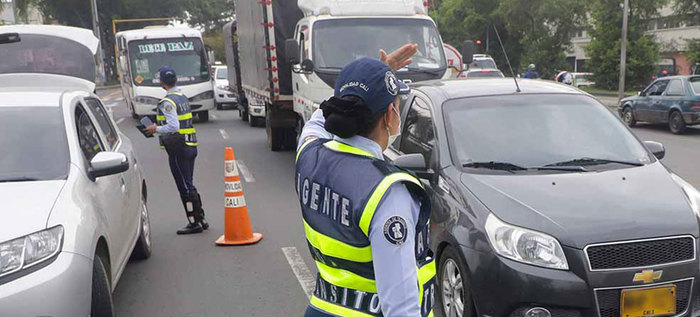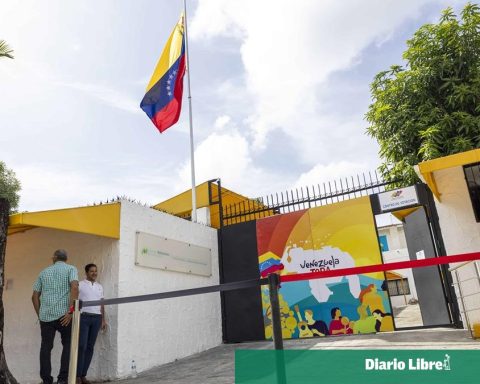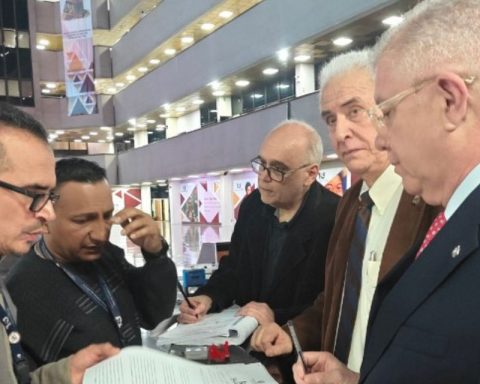The Government managed to largely unblock the conflict that kept truckers mobilized on routes throughout the country, after two fruitless marathon days and after a third meeting that took place at the Ministry of Transport (MTT) this Sunday, in which The head of the portfolio, the Undersecretary of the Interior Manuel Monsalve, the head of the Confederation of Production and Commerce Juan Sutil, the leaders of the Federation of Truck Owners of the Valparaíso Region (Fedequinta), and the businessmen and representatives of the Chilean National Confederation of Land Freight Transport (CNTC).
And despite the fact that the northern unions have not yet stated that they adhere to this agreement and until now they would remain mobilized, the stoppage on the roads of the fifth region is beginning to be cleared as of now, after the aforementioned parties agreed on 10 key points in terms of safety and the price of fuel.
You may also like:
Let us remember that what had the talks trapped was precisely this last point, something that the Executive addressed by offering to freeze the price of diesel for three months —now there are four— and to inject an additional US$1.5 billion into the Mechanism for Stabilization of Fuel Prices (MEPCO ); which had not been accepted by the carriers at the last meeting, but now—after some modifications—they mostly accepted.
“The agreement contemplates a measure that benefits all Chilean men and women. Those 1,500 million dollars that the government has committed to incorporate the MEPCO, contains the increase for all those who consume fuel in Chile, truckers or non-truckers. This benefits everyone those who use vehicles”, highlighted Undersecretary Monsalve, at the exit of the conclave that took place in the MTT, after a strike that has lasted for a week and to which the different unions of minor carriers that have blocked the routes are folded, especially in the northern zone and in the O’Higgins and Maule regions.
Now, the roads should start to clear. According to Monsalve, “there is a mechanism with which the Government takes over to stabilize fuel prices, which implies a significant fiscal effort. And there are also specific measures for the transport sector that consumes diesel.” In particular, there is an agreement for the Executive to enter a bill to freeze or prevent the rise in this fuel for 120 days (4 months). After that, “a mechanism will operate in which the price of diesel will be adjusted every 21 days, but never beyond a band of 15 pesos,” said the Undersecretary of the Interior, highlighting the tripartite work table.
And it is that the Minister of Transportation, Juan Carlos Muñoz, is going to lead a table in which the leaders that represent the truckers plus the CPC will be sitting. That table, added Monsalve, also “will make sense to look for mechanisms so that in those cases where the increase in fuel is not reflected in the transport rates, that is corrected. This agreement is an agreement that takes care of the problem that truckers face. In addition, we have incorporated a set of safety measures,” he added.
“The important thing is that the government takes charge of problems without losing sight of caring for the country, which is everyone’s responsibility. The government helps to guarantee that, but it is also the responsibility of truckers and businessmen,” said the Interior Ministry official. and Public Safety. Monsalve reiterated that “it is not possible to occupy public resources that all Chileans require to only solve problems that have different solutions, in this case, the tripartite table.”
It is worth mentioning that, among other unions, the National Confederation of Truck Owners (CNDC), Chile Transporte, the Federation of Passenger Transport, and the National Confederation of Cargo Transport adhere to the agreement.
“I want to tell those who have not yet reached an agreement that they can join this agreement because it is an agreement that solves the problem of truckers and carriers in the country. It makes no sense to remain unemployed. And, finally, I say that as there is a broad agreement and we are willing to listen to those who still do not reach an agreement, that they join, we cannot accept threats of roadblocks in Chile,” said Undersecretary Monsalve, referring to the warning made by Cristian Sandoval, president from the Fuerza del Norte Truckers Confederation, who called for blocking the routes if the CNTC came to fruition with the Executive.
It should be noted that this agreement reached with the government does not yet represent the carriers grouped in both the Fuerza del Norte Truckers Confederation and the Federation of Southern Truck Owners (Fedesur), who stated on Saturday that the mobilizations will continue “waiting for of a government reaction.
“When the country is threatened with blocking the routes, that means that there is no consideration for the problems that Chileans are experiencing. Private interests are placed above the interests of the country,” added the undersecretary, warning that “the government is going to use the tools provided by the rule of law and cannot allow blockades”. If there is, he added, “the Government will act with legal tools and will ask the Public Force to clear the blocked routes.”
For his part, Minister Muñoz appreciated the agreements reached in terms of security and stressed that the idea of creating this tripartite table is, in addition, “to identify the ways to guarantee and promote that rates paid from cargo providers to truckers adjust in a way to the costs they face. In his opinion, this “is a great advance” and he called on those who have not yet joined to do so, “understanding that it is a forceful advance in all the dimensions that have been presented at the discussion table here at the Ministry of Transportation”.
Regarding the threats from truckers from the north, Minister Muñoz stated that “it is up to us to ensure that mobility is guaranteed, to ensure it, and in this sense, we do not find any type of threat of this nature unacceptable and rather we call for an understanding that When you enter a negotiating table, when you talk, you have to be able to understand arguments that are put forward and that have been accepted by the vast majority of the leaders of the cargo transportation sector and we believe that it lays good foundations to have a more effective dialogue in the future”.
“We are permanently open to dialogue and governing requires us to be in these types of conversations. This does not mean that some union cannot present another type of observation and we will always be working to talk. It is difficult to say that a conflict is over, but we say that We have taken a very relevant step in returning to normality on the roads of our country,” closed the head of the MTT.
Truckers: “we reached an agreement, but we are not happy”
The president of Fedequinta, Iván Mateluna, acknowledged after the meeting that an agreement was reached with the Executive, specifically on two points associated with security and the stabilization of fuel prices, for which the mobilizations in the Region of Valparaíso and the majority of the roads will be cleared.
“We wanted to get all the fuels to be lowered, but unfortunately it was not possible. The government explained to us, we understood and the worst thing is to get angry at situations like this. We had started this negotiation with the Treasury on Monday the 21st, then we had a situation complex because the government rejected our proposal and we sent it a counterproposal that was not accepted either, and the only thing that we could not reach an agreement and understanding that the highways were blocked, and sometimes intervened especially in the fifth region, we managed to reach an a solution so that the highways will be enabled today”, communicated the union leader.
Mateluna delved into the demands, detailing that “we came to ask for an exclusive prosecutor against the robberies and kidnappings of our drivers and trucks, and the other thing we had in the requests was that we needed fuel to be reduced by at least 30 percent. That was not achieved. We asked for up to 10 percent and the government definitely said no. Another point was the stabilization of the price of fuel, and we at least achieved that and that is what we reached as an agreement.”
Despite the above, the trucker leader clarified that “we are not leaving happy, and I want to apologize to the people who hoped that at some point the Government could help us. We had our own agenda, I know there are others groups of carriers that are asking the government to do it that way for all fuels. We comply with everything that our bases mandated to us. I don’t want something to be judged that we really obey what they have mandated us “.
Carlos Bretti, general secretary of the National Cargo Transport Confederation, appreciated that, like never before, “Juan Sutil of the CPC, which brings together the largest industrialists in the country, committed to supporting any type of progress that means stability for carriers”.
“Although at some point it might seem very pretentious and unreasonable to ask for a 30 percent reduction in fuel, in some way, today, with the commitment that we acquired with Juan Sutil and with the business group that he presides over, the aim is to improve the issue of rates, improve working conditions, since there are many deficiencies in the activity”, added Bretti.
Regarding the truckers from the north, the leader of the cargo carriers said that the threat is not very encouraging, “considering that we use the same carts, we have the same problems, however, we have come to talk and reach an agreement that does not allow of being”. “Having sat down with the total disposition of a work table, not three months from now, but tomorrow, to solve this problem, I would say that it is a tremendous advance.”
Finally, the leader of the CPC, Juan Sutil, who has been present at all meetings with the truckers and the Government, maintained that the agreement “is the beginning of a work plan to address a series of additional demands that have to be channeled to the work table through the MTT and the Ministry of Economy, together with the carrier federations and the CPC with all its branches.
“Carriers and businessmen are essential for Chile and we have to get closer and closer to solving common problems,” concluded Sutil.
Truck Drivers Government Agreement by The counter on Scribd


















